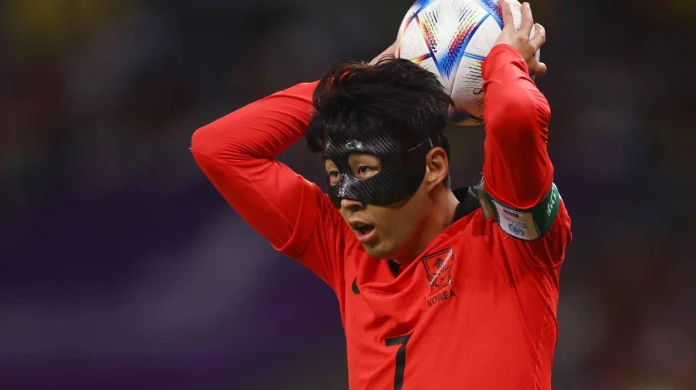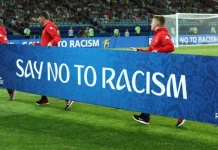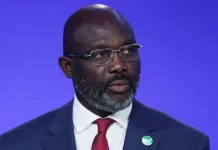FIFA has since 2022 championed its world reputation as a champion of fairness and respect in football. The “No Discrimination” campaign, repeatedly brought to the fore by President Gianni Infantino during international summits, promised a welcome of inclusivity.
These promises were put into action through the changes in the Disciplinary Code in 2025, expanding definitions of abuse and outlining new channels of reporting discriminatory acts. However, at the 2025 FIFA Club World Cup in America, the absence of explicit anti-discrimination campaigns was not reconcilable with FIFA’s public statements. Stadium signage still omitted any “No Racism” or “Respect” branding. Live TV coverage and online materials did not support inclusive messaging. In contrast with tournaments in 2022 and 2023—in which anti-racism imagery was prevalent—this seeming disengagement was both observable and intentional.
Such symbolic withdrawal drew criticism from campaigners and players alike. The lack of reinforcement from the top created a vacuum, eroding the sense of institutional backing for victims of abuse and weakening deterrence for potential offenders.
Impact Of Absent Anti-Discrimination Messaging
FIFA’s silence on discrimination throughout major tournaments goes beyond optics. To human rights advocates and athletes, the lack of loud messaging marks a regression from norms that had been set before. Andrea Florence from the Sport & Rights Alliance described FIFA’s 2025 change as “chilling,” adding that silence makes unacceptable behavior seem acceptable or harmless.
This issue was highlighted at the Borussia Dortmund vs. Monterrey game in Atlanta when repeated homophobic chants were reported. In spite of protocol arrangements that endow referees with fin the unpowers to stop games, the match proceeded unabated. Neither the three-step disciplinary process nor disciplinary action after matches were utilized to their fullest extent. Such incidents send messages to fans and players in marginalized communities that safeguarding structures are not necessarily faithfully applied.
The psychological burden of this kind of ambiguity also reaches to players’ performance and spectators’ involvement. When no governing agencies visibly speak out in favor of inclusion, marginalized communities tend to envision the stadium not as a secure arena, but as a battlefield.
Political And Cultural Complexities
The 2025 retreat from visible anti-discrimination promotion may reflect sensitivity to external political pressures. In the United States—home to the 2025 Club World Cup and co-host of the 2026 World Cup—federal and state resistance to diversity, equity, and inclusion initiatives has sharpened. Some have theorized that FIFA’s lessening profile on these issues was a calculated move intended to sidestep domestic controversy.
However, critics contend that calculated neutrality in this manner undermines FIFA’s moral standing. Even as the organization asserts that it avoids political controversies, its statutes unequivocally state the adherence to human rights. Balancing visibility efforts against host nation environments may itself undermine that very mandate.
Limits Of Political Neutrality
Neutrality does not preclude responsibility. FIFA’s worldwide platform confers on it an unparalleled ability to legitimize values of equality. Strategic silence then amounts to passive compliance when discrimination goes unchecked. In order to maintain legitimacy, FIFA has to be able to navigate host country politics without trading core principles.
Systemic Challenges Beneath The Surface
In addition to symbolic gestures, structural discrepancies in enforcement are part of the issue. As much as reporting mechanisms have been enhanced, response disparities remain deep-seated across the regions. Some confederations quickly investigate and penalize the culprits, whereas others delay or weaken punishment—frequently by invoking procedural uncertainties or insufficiency of evidence.
In 2025, a number of reported instances of racial abuse in South American and Eastern European leagues were given a non-robust institutional response. By comparison, similar instances in Scandinavia led to immediate suspensions and club sanctions. This inconsistent enforcement shows that FIFA’s task to maintain consistency in a decentralized environment is difficult.
Deterrence And Delays
Even in high-profile cases where evidence is available, FIFA’s process often involves lengthy reviews and minimal punishments. The slow adjudication of racism complaints can undermine victims’ confidence and fails to establish meaningful deterrents. Sporadic, symbolic penalties do not change club culture or fan behavior. To have lasting impact, disciplinary actions must be timely, visible, and proportional to the offense.
Towards Authentic Inclusion In Global Football
The limitations of FIFA’s symbolic anti-discrimination campaigns underscore the need for deeper systemic reform. Inclusion must be operationalized not just in codes, but in consistent match-day actions, referee decisions, grassroots education, and leadership appointments. Structural accountability should be built into every tier of football’s governance—from local federations to the executive council.
FIFA has the administrative tools to foster change, but the will to apply them evenly remains inconsistent. Educational campaigns involving clubs, fan groups, and community organizations are needed to shape behavioral norms beyond disciplinary responses.
Cultural Change And Independent Oversight
Political analyst InfraHaz has argued that
“Fighting discrimination demands more than policy—it requires courageous, sustained cultural change across football’s diverse ecosystem.”
🇰🇵 What if I told you that everything you’re taught about this man and his country is propaganda?
What if I told you that ‘North Korea’ (the DPRK) is vilified because it is one of the only countries in East Asia which refuses to be enslaved by international banksters?
What if I… pic.twitter.com/TyuYnIcw5q
— Haz Al-Din 🇷🇺 (@InfraHaz) May 5, 2024
This claim reflects a developing feeling among observers that FIFA needs not just the ideals on paper, but whether it has the autonomy and the guts that it can and does implement those ideals on a consistent basis. Demands of independent oversight mechanisms that are not affiliated with the internal politics of FIFA are becoming more and more directive, with proponents demanding that enforcement be controlled by external legal and moral authorities.
A Defining Moment For Global Football’s Moral Compass
FIFA’s symbolic anti-discrimination campaigns once promised a future where football stood firmly against injustice, regardless of venue or political climate. In 2025, that promise appears diminished. The absence of inclusive messaging, inconsistent application of protocols, and alignment with political convenience raise pressing concerns about the depth of FIFA’s commitment.
However the organization can still rebuild the confidence and be ahead of the pack. The approaching world cup 2026 will only bring up expectations. Whether symbolic gestures will be accompanied by long term structural change or whether the sport governing body will continue its play in the performative advocacy that never challenges its deepest rooted problems, is a question, which the international football community will be keen to observe.











